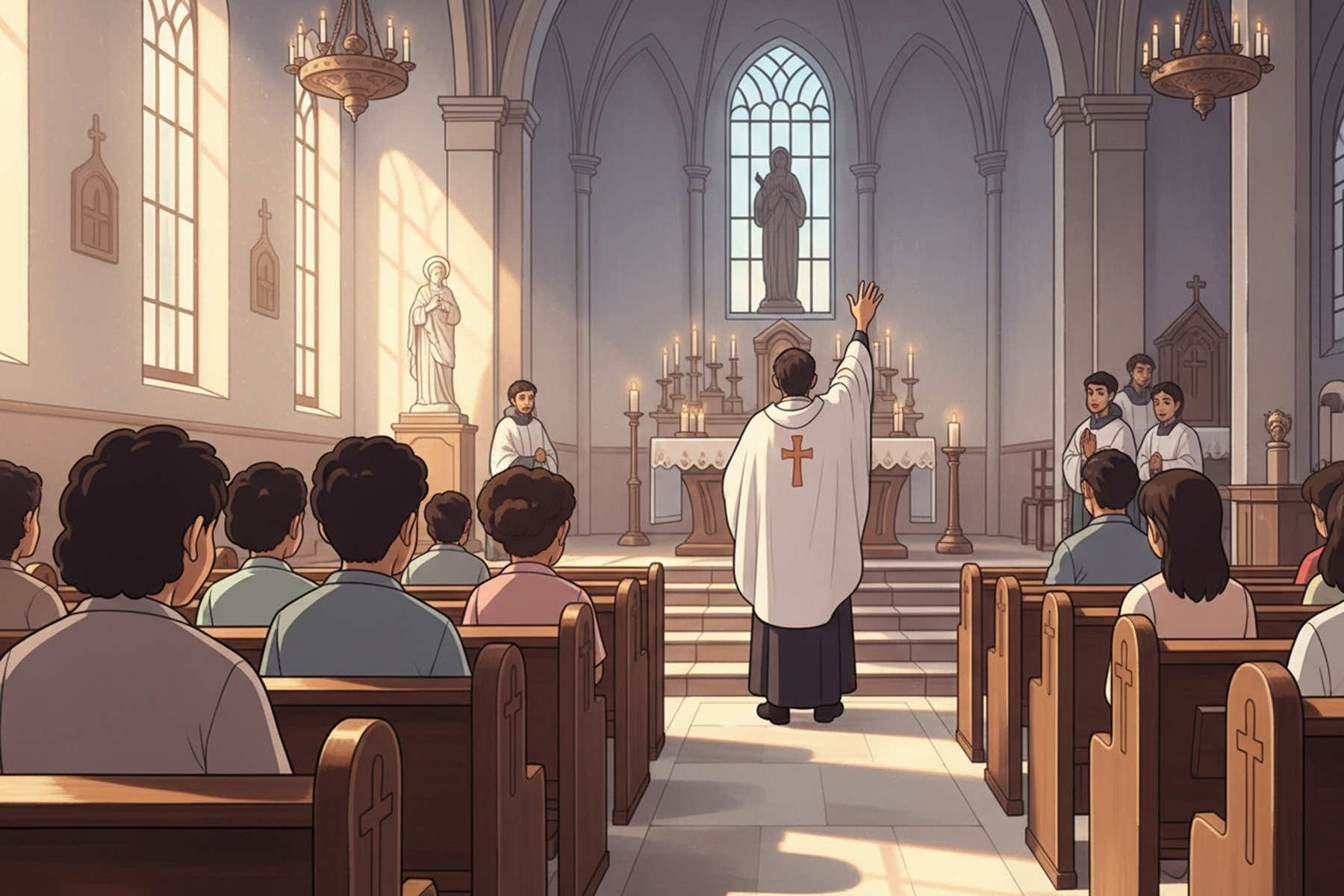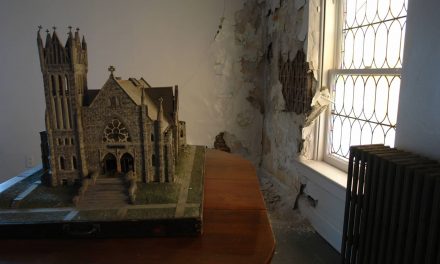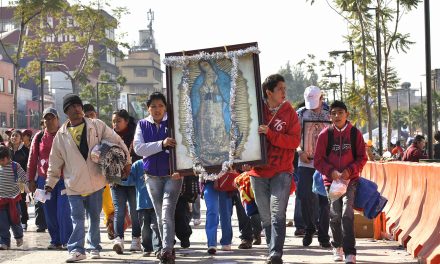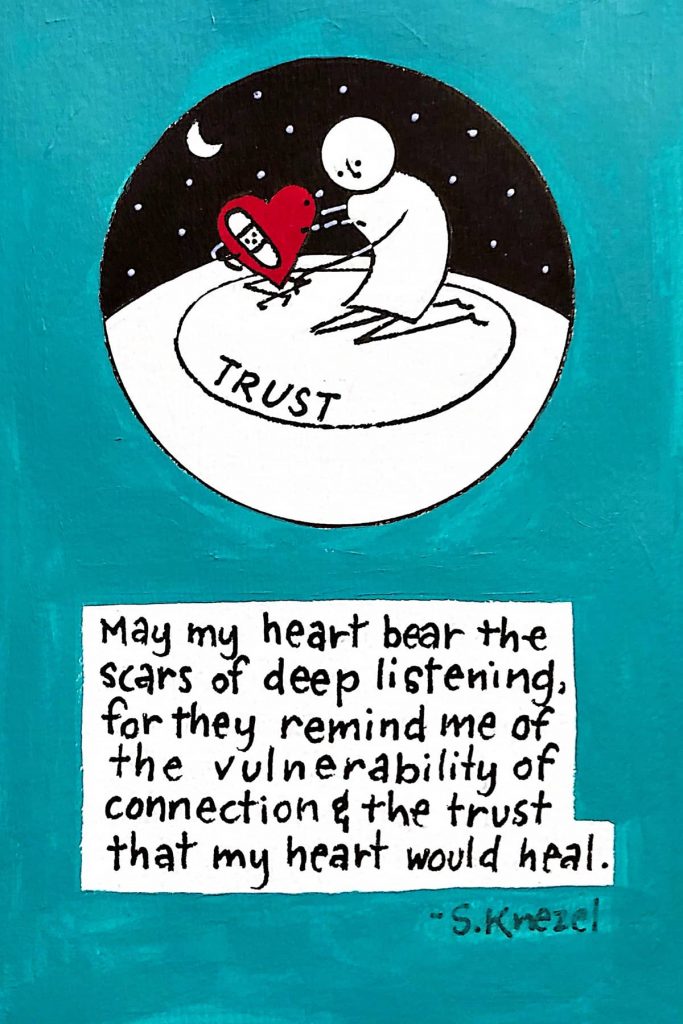
This explainer series, Catholic Doctrine on Immigration, explores how the teaching of faith and Scriptures intersect with immigration policy, focusing on the role of Milwaukee’s Catholic Church in responding to enforcement, labor dynamics, and family separation. Through detailed reporting across legal, economic, and pastoral contexts by Milwaukee Independent staff members, the series examines how Church teaching shapes institutional action and informs the Church’s engagement on national immigration issues. mkeind.com/catholicimmigration
The immigration enforcement apparatus of the United States is not just a border issue. It is a family issue. Every raid, detainment, and deportation reverberates through households that often span legal categories.
Nowhere is this more visible than in states like Wisconsin, where immigrant families live in legal limbo, caught between federal policy and local realities. Wisconsin is home to tens of thousands of mixed-status families, where at least one member is undocumented while others are citizens or lawful permanent residents.
According to state-level data compiled by immigrant advocacy networks and highlighted in documents circulated by the Archdiocese of Milwaukee, over 13,000 U.S. citizen children in Wisconsin have at least one undocumented parent. These children live with the constant threat that a parent may be detained or deported, not because of criminal activity, but due to immigration status alone.
This risk is not hypothetical. Enforcement efforts in Wisconsin have included workplace raids, collaboration between local law enforcement and federal agencies, and increased use of administrative checkpoints.
These practices have triggered a ripple effect of trauma within affected families. Children are taken from school while a parent is detained, spouses are left to manage households alone, and entire communities are destabilized by fear.
The consequences extend well beyond the individual. When a parent is removed, the economic foundation of a household can collapse. Families lose income, housing becomes insecure, and children experience psychological distress.
Educators in southeastern Wisconsin have reported behavioral changes among students with undocumented family members — including anxiety, withdrawal, and academic decline — as immigration enforcement becomes an ambient threat.
Milwaukee’s faith community has been on the front lines of this crisis. The Archdiocese has documented dozens of cases where families were disrupted or permanently separated due to immigration enforcement.
In some parishes, entire ministries have evolved to support affected families, helping them navigate guardianship paperwork, access legal aid, and maintain stability in the face of federal intervention. The response is not simply pastoral; it’s institutional. Catholic schools, charitable organizations, and diocesan offices have coordinated strategies to keep children housed, fed, and enrolled even after a parent’s detainment.
While the public narrative around immigration often centers on legality, the lived experience is one of instability and fragmentation. The immigration system, as it currently functions, does not offer meaningful pathways for family unity.
Many undocumented parents have lived in the United States for over a decade, paid taxes, and raised U.S. citizen children — yet remain ineligible for regularization due to outdated quotas and bureaucratic barriers.
What makes the current policy landscape especially destructive is the gap between enforcement and remedy. Families facing separation often have no legal recourse. The immigration courts are backlogged, discretionary relief is rare, and appeals processes can take years, all while the family unit remains fractured.
Wisconsin advocates have flagged this procedural bottleneck as a hidden crisis. Children are placed in foster care not due to neglect, but because a parent is detained. Elderly dependents lose caregivers. Siblings are split across households. And in the absence of formal deportation relief mechanisms, these realities become permanent.
This bureaucratic cruelty is not accidental. It is structural. The federal government’s approach to enforcement prioritizes removals over resolution. Interior enforcement strategies, including the use of I-9 audits and community-based surveillance, disproportionately affect long-settled families rather than recent arrivals.
In Wisconsin, many of those targeted have lived in the state for over a decade, own homes, and contribute to the workforce. But the system offers no recognition of these ties. Legal status is treated as binary: either you have it, or you do not. And for thousands of families, this binary logic breaks the bonds that hold them together.
Local institutions have tried to fill the void. In Milwaukee, church-based legal clinics, staffed by volunteer attorneys and law students, have emerged as critical support networks. While these clinics cannot resolve structural injustice, they provide a line of defense by filing emergency stay requests, explaining complex immigration options, and helping families prepare contingency plans. This includes establishing temporary guardianship, gathering documentation, and preemptively identifying support networks should a parent be detained.
Community organizations have also stepped in, not as political actors, but as first responders. School staff in Milwaukee-area districts have received training on how to handle ICE-related trauma. Counselors are briefed on the signs of family instability due to immigration enforcement. In some schools, staff have developed internal protocols to connect affected families with legal and housing resources. Such responses are born out of necessity, not official mandate.
But the central contradiction remains. U.S. policy claims to value family unity while implementing procedures that destroy it. This hypocrisy is not lost on faith leaders in Wisconsin.
The Archdiocese of Milwaukee has repeatedly called for reforms that center the family unit, including protections for long-term residents and pathways to regularization for parents of citizen children. These are not fringe positions. They reflect a growing consensus among educators, clergy, and service providers that the current system punishes families rather than protecting them.
Until that system changes, the burden will remain on local communities. Milwaukee has shouldered that burden with limited resources and extraordinary resolve. But compassion cannot substitute for policy. And while ministries and mutual aid can soften the blow, they cannot reverse the damage once a family is broken by law.














